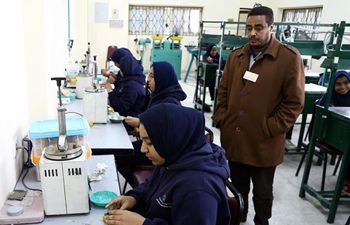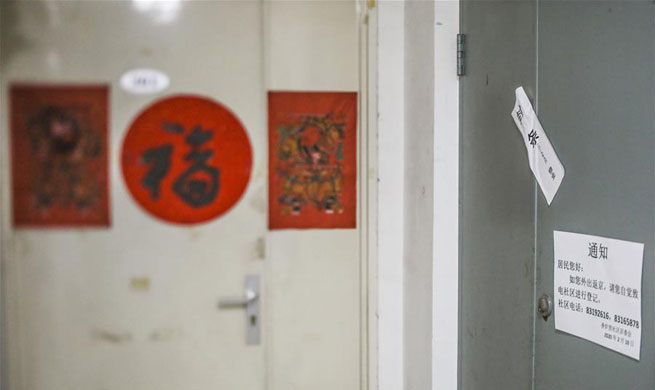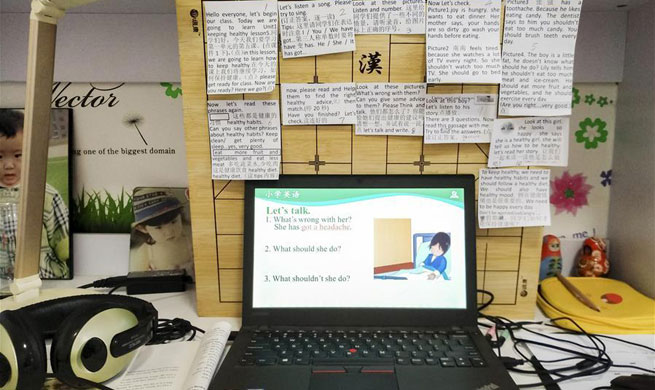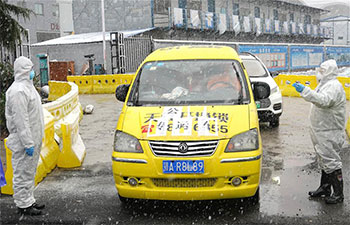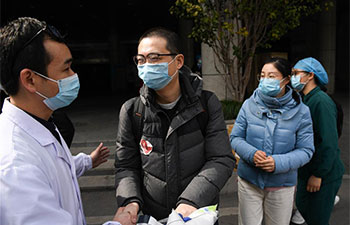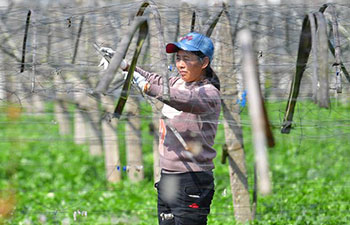BEIJING, Feb. 17 (Xinhua) -- Beyond zoos, museums and games, virtual reality (VR) technologies are wooing more followers in a more unexpected sector in China: the real estate industry.
VR salesrooms and livestreaming are gaining popularity among the country's property developers and agents, who seek to pitch would-be house buyers temporarily kept away from offline marketing due to the outbreak of the novel coronavirus.
The proportion of online VR house visitors surged 57.7 percent month on month in January, according to online marketplace 58.com and housing information platform anjuke.com. Another online housing platform Beike showed that over 1.24 million VR visits had been made between Feb. 1 and Feb. 9, skyrocketing almost 60 times year on year.
The VR marketing boom is one of the property sector's moves to keep itself afloat during the epidemic.
Official data showed Monday that home prices in 70 major Chinese cities remained generally stable in January, with 47 of the 70 cities reporting month-on-month gains, down from 50 registered in December. Yet the bite of the epidemic is likely to be reflected in February's housing investment and sales data as prevention and control measures escalated this month.
Amid the epidemic, many cities have suspended house sales activities, as well as the construction of apartments, weighing on the capital-intensive sector's operation.
Despite increasing downward economic pressure, Chinese authorities have kept a tight lid on housing market speculation.
The country will stick to the principle that "housing is for living in, not for speculation," along with the implementation of a long-term management mechanism for the market, said Finance Minister Liu Kun in a written article published in a recent edition of Qiushi Journal, a flagship magazine of the Communist Party of China Central Committee.
While avoiding large-scale stimulus, some local governments have stepped in to help the sector tide over the tough time.
Cities including southeast China's Xiamen and Fuzhou have unveiled a string of incentives including credit support, financing cost cuts and repayment expiration extensions to ease the property market strain.
Some Chinese developers also took to price-cutting to lure customers. China Evergrande Group, the third-largest developer in China, said Sunday that it would offer a 25-percent discount for all property sales from Feb. 18 to 29.
Zhang Bo, a researcher with 58.com, is upbeat about the market's long-term growth. "The outbreak may exert short-lived downward pressure on the turnover of the property market, though once the outbreak ends, the housing market will generally recover and sales will also see a rebound."
"The current property industry plays a different role in the Chinese economy and operates in a different economic climate than in 2003 when SARS broke out, with various new characteristics and development trends," Sheng Songcheng, a senior researcher and former central bank official, said in a research note.
Sheng said local governments should fine-tune their real estate market policies with reasonable and targeted support for the sector, while "overall market stimulus for short-term growth is not an advisable choice."




